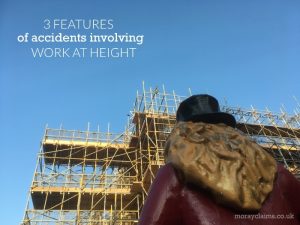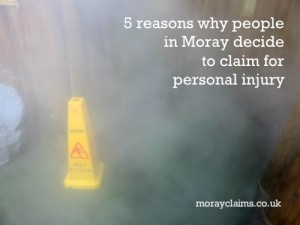Sunday, 26 August 2018 marked the 90th anniversary of the “snail in the ginger beer bottle” incident. While enjoying a drink with a friend in the Wellmeadow Café in Paisley, May Donoghue found an unwelcome addition to the contents of her bottled drink in the form of a decomposing snail. The injury she suffered when she drank the unpleasant mixture gave rise to the case of Donoghue –v- Stevenson, one of the most famous personal injury cases of all time. Though you would more readily link cheese with a mouse than ginger beer with a snail, it was ironic that a dead animal should again feature in a personal injury scenario reported so close to Donoghue –v- Stevenson’s 90th anniversary. On 22 August 2018, Kirkwall Sheriff Court dealt with a criminal prosecution arising out of an accident in a cheese factory in Orkney. A dead mouse caused an employee to have to work at a height from which he (the employee) fell and suffered injury. In this article, we will look at three aspects of work Continue Reading
Employers' Liability
Below you can find our articles which deal with issues relating to Employers’ Liability for personal injury sustained at work.
5 Reasons Why People In Moray Decide To Claim For Personal Injury
Our Personal Injury solicitors, Marie and Peter, have been handling claims on behalf of people in Moray for quite a few years now. Of the clients we have helped, probably none relished the prospect of making a compensation claim. Many had some sort of “objection” or problem in their minds, which they had to overcome before deciding to go ahead. The cynical “Compensation Culture” view is that it’s all about getting money. It has to be partly about money because that’s how the law of personal injury works but, in our experience, it’s not the whole story by any means. We’ve collected comments from injured people we have helped in Moray and this article sets out some of the most common motivating factors behind their claims. As you will see, some of the themes overlap a bit. Here are 5 reasons why people in Moray decide to claim for personal injury losses. You incur significant loss of earnings If you’ve been injured and have to take time off work in order to recover, you may not Continue Reading
Helicopter Accident At Work Scenario Shows Up Inconsistencies In The Law
At the moment, we do not know the probable cause of the tragic helicopter accident in Glasgow on the evening of 29 November 2013, so the following discussion is hypothetical. It also concentrates exclusively on the application of the law to the occupants of a helicopter in similar circumstances (i.e. all persons “at work” at the time) and their relatives. In delivering an online update webinar to members of the Association of Personal Injury Lawyers (APIL) on 09 December 2013, APIL Chief Executive, Deborah Evans, has highlighted how one possible scenario for the accident could provide an example of the changes brought about by the Enterprise Act with effect from 01 October 2013. These changes affect employees’ ability to make claims for personal injury damages against their employers arising out of accidents at work and also the rights of employees’ families to claim compensation for the death of their relative in the course of their employment We have blogged about the effect of the Continue Reading
Work Accidents: All Change, But Not For Public Sector Employees
A significant change in the law affecting personal injury claims for accidents at work becomes effective from 01 October 2013. A review of health and safety legislation over the last two years by the Westminster Government culminates in the enactment of section 69 of the Enterprise and Regulatory Reform Act 2013 (“the 2013 Act”), which is in force from 01 October. Background to the Enterprise and Regulatory Reform Act 2013 The Government considered that there was too much red tape for businesses trying to comply with their health and safety obligations and this resulted in unnecessary cost. The Government also took the view that the present law was unfair because employers’ liability insurers sometimes had to pay out on claims even though the employer they insured had done everything they could to safeguard their employees in the circumstances. There was, for example, such “strict liability” if an employee was injured due to a failure of a piece of work equipment even if it could Continue Reading


